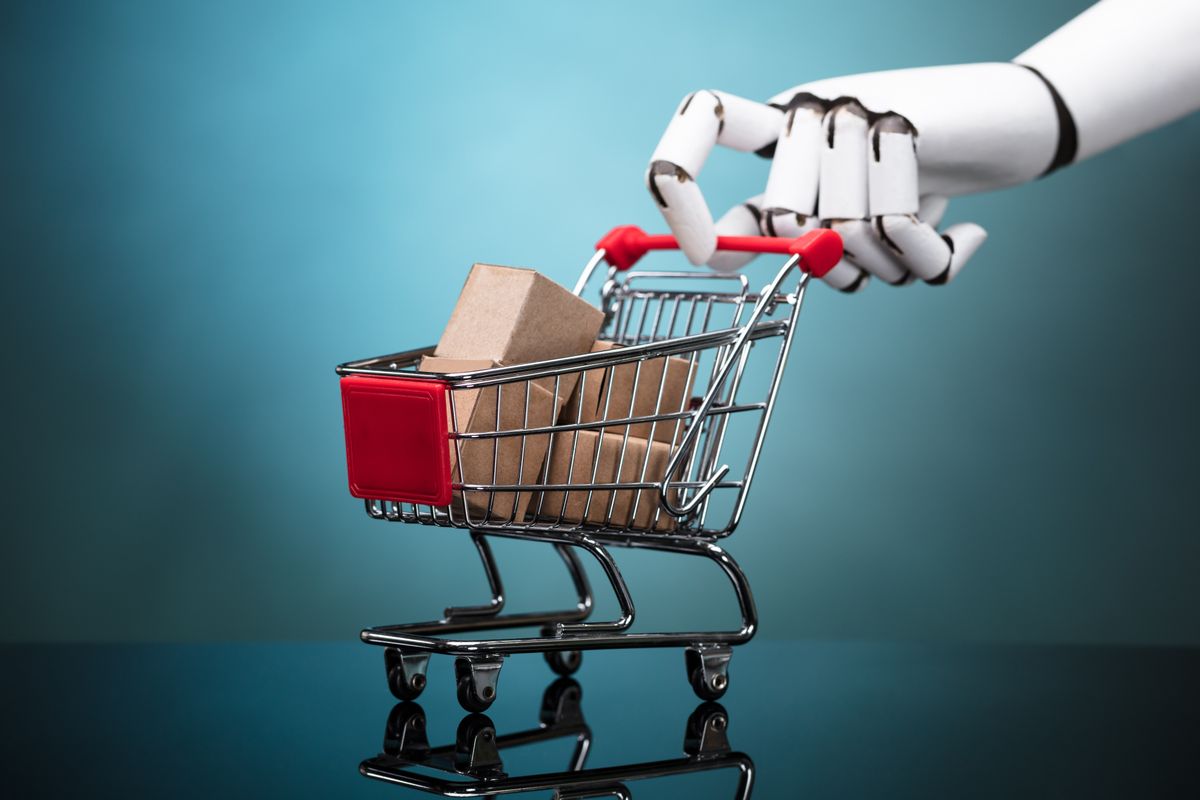
How AI Can Help Your E-Commerce Store Boost Sales and Lower Costs
By Monica Bansal
Imagine landing on a sportswear website on a rainy day and being immediately shown a product recommendation for rain boots! This might have been wishful thinking a few years ago, but it's a reality today. Personalized shopping experiences have taken on a whole new meaning today with artificial intelligence (AI).
Personalized shopping represents just one of the ways AI has transformed the way e-commerce stores do business. Read on for more ways to utilize AI in your e-commerce site.
How to use AI to boost sales on your e-commerce site
1. Present a customized interface based on customers’ shopping behavior
A weather-related recommendation is just one of the amazing AI-powered personalizations, but AI can also enable site personalizations like presenting a customized interface based on a customer’s past interactions or browsing behavior.
For example, a Korean food enthusiast with a purchase history of five kimchi cans in the last three months lands on an artisanal food site. What would the store owner have done if this were a physical store? “Great to see you again! Is this the kimchi that you like? It’s on sale today.” Thanks to AI, an online store can now replicate this same level of personalization and in real-time pop a customized interface with a recommendation or banners for the same kimchi, with or without a discount offer.
This type of service can also reduce bounce rates and cart abandonment by guiding shoppers toward products they are more likely to purchase.
2. Automatically add enhancements to certain products
AI-enabled apps can help enhance website aesthetics, making products stand out by applying trust badges to increase customer trust. For example, stores can add badges that say “Best Seller!” or “Selling Fast!” based on inventory levels and a customer's purchase history of certain products. This adds a layer of urgency and helps move buyers further down the sales funnel. In addition, it also helps e-commerce stores manage their inventory and offer equal exposure to products.
3. Encourage repeat purchases
AI can help retailers forecast product demand more accurately, leading to reduced stockouts and better inventory management. Predictive analytics will analyze customers’ purchase frequency and trigger automated emails or text messages when it's time to place a new order. This can lead to an increase in repeat purchases and increase customer lifetime value.
4. Help customers navigate e-commerce sites with chatbots
According to Gartner by 2027, chatbots will become the primary customer service channel for about a quarter of organizations. Most fully-loaded websites are already using easy to build AI chatbot pop-ups, asking customers questions on what they’re looking for and helping them move further down the sales funnel. If a customer happens to navigate away from a page or section they’ve spent some time on, the chatbot can ask if they faced any issues shopping on that particular page.
5. Produce videos
Videos containing product information and testimonials are essential in D2C e-commerce, and running a social media campaign on TikTok or Instagram without videos would be impossible. With the help of AI-enabled video apps, e-commerce owners can produce professional quality product videos at scale. Some platforms can even help convert articles or texts into videos in minutes using a few text prompts.
6. Write product descriptions
AI can help write tailored, SEO-optimized and grammatically sound product descriptions for e-commerce stores within minutes.
7. Offer visual search
Thanks to AI, there are platforms which allow users to conduct visual searches using photos on e-commerce sites. The site will then display results showing similar products. This feature is especially helpful for fashion, jewelry, and home decor brands.
8. Assist with dynamic pricing
What to charge, how much to discount, and the threat of being outpriced are constant concerns in e-commerce pricing. There are many apps and platforms that help e-commerce stores nail dynamic pricing with AI. These tools help set and change in real time the optimum price for products based on the company’s own costs, stock levels, demand levels, as well as competitors’ products.
FAQs on AI and e-commerce
What are the best AI tools for e-commerce?
- ChatGPT: A large language model for creating content
- MidJourney: A text-to-image art and image generator
- Mason AI: A platform offering tools for sales automation
- Vue AI: A platform for data cleanup, document processing, and workflow and sales process automation
- DALL-E: A text-to-image model for creating images and artwork
Can AI build an online store?
Yes, AI-enabled web hosting tools like Hostinger can build an entire store template. However, a human touch is still necessary to make it all come together cohesively. AI builder tools can generate website design templates, write tailored content, insert product placeholders, and more.
What is the future of AI in e-commerce
According to research by Insight AceAnalytic, the AI-enabled e-commerce market size is projected to reach $16.8 billion by 2030. The e-commerce ecosystem will continue to integrate AI, especially in predictive analytics, customer service, and content management.
About the Author
Post by: Monica Bansal
Monica Bansal is an experienced marketer with over 12 years working in the industry at companies like Google, EY, Aditya Birla, Hustler Marketing, and more. She’s also an avid travel blogger, a certified yoga teacher, and founder of Shantispaces.com, a home for curated listings of schools, workshops, and events in the yoga, wellness and spirituality space.
Company: Shanti Spaces
Website:
www.shantispaces.com
Connect with me on
LinkedIn, Twitter and Instagram.





